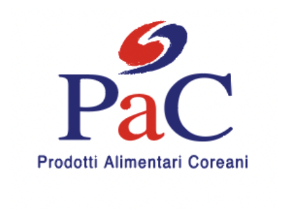HA JUNG – WOO
Name in korean: 하정우
Name pronunciation: Ha Jeong-u
Date of Birth: 11 Marzo 1978
Gender: Man
Biography
Ha Jung-woo was born Kim Seong-hun on March 11, 1978. His father Kim Yong-geon is also a well-known actor. He began to tread the boards of the stage while attending university, a period in which he also began to devote himself to painting, before facing military service in 1998. She made her film debut in 2003 in the film "Madeleine" and subsequently took part in several films in secondary roles until 2005 in which she starred in "The Unforgiven" by Yoon Jong-bin followed by "Time" (2006) and "Breath" (2007) both directed by Kim Ki-duk and the independent film "Never Forever" alongside Vera Farmiga. In 2008 he had a leading role in the thriller "The Chaser" by Na Hong-jin, which brought him to the attention of an increasingly large audience even outside the national borders. In the same year, "My Dear Enemy", a romantic drama starring Jeon Do-yeon, was also released. In 2009 he starred in Kim Yong-hwa's "Take Off", which became the most watched film of the year in South Korea. Na Hong-Jin directed him again in the thriller "The Yellow Sea" which earned him several awards for Best Actor. "Nameless Gangster: Rules of The Time" (2012) marks his second collaboration with director Yoon Jong-bin and his first appearance alongside celebrated actor Choi Min-sik. The following year he played the role of a North Korean spy in Ryoo Seung-wan's "The Berlin File" which earned him the award for best actor at the 49th BaekSang Arts Awards, and also in 2013 he went behind the camera for the first time to direct the comedy "Fasten Your Seatbelt". He will repeat the experience by writing, directing and performing "Chronicle of a Blood Merchant". In the meantime, he took part in two highly successful ensemble films such as "Kundo: Age of the Rampant" (2014) and "Assassination" (2015). 2016 is the year of two important collaborations, the one with Kim Seung-hoon for "Tunnel" and with Park Chan-wook for "The Handmaiden" presented in competition at the Cannes Film Festival. Kim Yong-hwa's "Along With the Gods: The Two Worlds" and Jang Joon-hwan's "1987: When The Day Comes" are the two films he took part in in 2017, while "PMC" directed by Kim Byung-woo is scheduled for release in 2018.
Critique
What secret lies behind the surprising ability of an interpreter like Ha Jung-woo to empathize? His career has literally transcended the very concept of versatility, tackling a vast amount of characters with incredible energy in a relatively few years. A charming boy, a confused man, a passionate lover, a serial killer, a spy, a con man, a grief-stricken father, and most recently an otherworldly spiritual guide. These are just some of the roles he has played, succeeding in the feat, in just twenty years, of crossing the most recent history of South Korean cinema, moving with agility from independent cinema to family cinema, from auteur cinema to blockbuster. No recurring characteristics for the choice of roles in his cinematography, but the iron will to experiment with everything, giving himself completely to a role without ever disappearing into it. It is certainly the charisma that acts as a continuous bass in the common thread that unites all his work, self-irony, a strong intelligence and an authentic love for art in all its forms (in addition to being an actor, Ha Jung-woo is a director, screenwriter and also a painter). There is in him an astonishing ability to manage the possibilities of the body, to find that detail in posture, in attitude or even just in the way he wears a dress or moves his facial muscles imperceptibly, capable of defining the peculiarity of a character. It is something very subtle but evident in a profound connoisseur of his own art, in which skill as a painter may have come in handy. Just think of the always slightly scowling expression and slightly curved shoulders that characterize the attitude of the protagonist of Kim Ki-duk's "Time" (2006), able to perfectly characterize the character's insecurity and sense of inadequacy. Ji Young-min, the homicidal psychopath in Na Hong-jin's "The Chaser," is in some respects a grown-up child who crosses his arms behind his back while walking or puts his thumb to his mouth. A deliberate uncertainty that also accompanies him in one of the most brutal scenes in which he tries to smash the skull of a victim, injuring himself instead. If the protagonist of "My dear enemy" by Lee Yoon-ki manages to hide his existential fragility with a false confidence, a lively speech and a decisive way of walking, that of "The Terror Live" directed by Kim Byung-woo, after an initial manifest arrogance he can no longer dissimulate his emotions by externalizing them mainly with his face, since he finds himself confined to a desk (which Ha Jung-woo skilfully uses as a point of support and opposition) for almost the entire duration of the film. An impeccable elegance is the one flaunted by the fake count of "The Handmaiden", the actor's first collaboration with director Park Chan-wook, who manages to remain intact until the moment of the terrible final showdown and who knows only one breakdown during a quarrel with his accomplice in which, attacking her excitedly for the lack of cooperation, he takes her hand to bring it to the crotch of his trousers. On the other hand, there is no simulation for the character played in "Chronicle of a Blood Merchant" (a film also directed by Ha Jung-woo): a simple man unable to hide any feelings, but who demonstrates a very powerful characterization of physical and emotional pain in the agitated final sequences in which the protagonist moves with difficulty, with his breath broken and his eyes half-closed. Wisdom is Gang Rim's most prominent characteristic in "Along With the Gods: The Two Worlds". As a spiritual guide and intermediary between the earthly world and the afterlife, he manifests all his authority above all with his posture, so confident as to seem almost detached, as befits an otherworldly creature. There is an amusing anecdote about Ha Jung-woo's interpretative ability in characterizing his characters through gestures: in fact, numerous images circulate on the net that see the actor engaged in eating during different scenes (it is easy to catch a clear homage to him in the opening sequences of "Along With the Gods: The Two Worlds"). The phenomenon is identified with the term "Eating broadcast" and what strikes viewers is the ability to show on the screen the authentic pleasure given by the representation of the act of eating a particular food by getting the greatest possible taste from it. To answer the question with which we opened, Ha Jung-woo's secret is, as he has repeatedly admitted, curiosity and the ability to observe the world around him; the ability to assimilate as much information as possible useful for building, starting from the physical perception of reality, a character not inside which to disappear, but through which to make one's unique personality shine. After having starred in almost 40 films and having successfully tried his hand at directing with "Fasten Your Seatbelt" (2013), in which he showed great confidence in making the comedy genre without appearing as an actor, and in the ambitious historical fresco "Chronicle of a Blood Merchant" in which he is also the protagonist (2015), Ha Jung-woo still has a dream: to play the role of Hamlet.
Filmography
- 2017 - ALONG WITH THE GODS: THE TWO WORLDS
- 2017 - 1987: WHEN THE DAY COMES
- 2016 - HANDMAIDEN, THE
- 2016 - TUNNEL
- 2015 - CHRONICLE OF A BLOOD MERCHANT
- 2015 - ASSASSINATION
- 2014 - KUNDO: AGE OF THE RAMPANT
- 2013 - BERLIN FILE, THE
- 2013 - TERROR LIVE, THE
- 2012 - NAMELESS GANGSTER
- 2009 - TAKE OFF
- 2008 - CHASER, THE
- 2008 - MY DEAR ENEMY
- 2007 - BREATH
- 2007 - NEVER FOREVER
- 2006 - TIME




